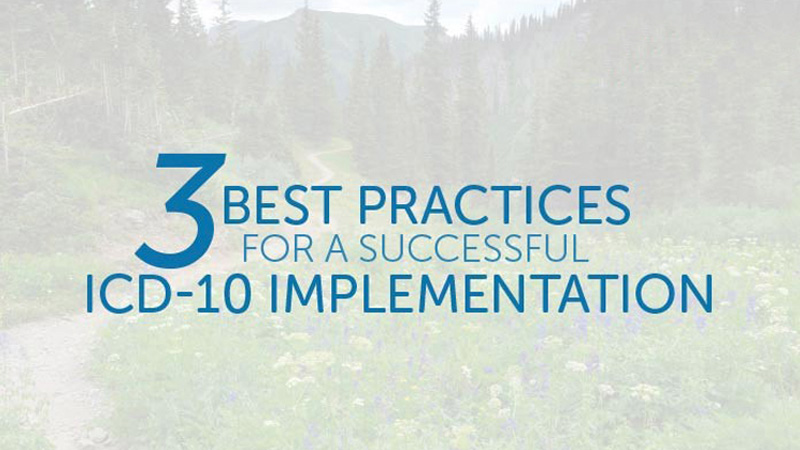
It’s hard not to dilly-dally when it comes to transitioning to ICD-10 coding, however, to the chagrin of most practices, the October 1 deadline is right around the corner. This means you need to stop delaying and start ICD-10 implementation now.
We understand it may seem like a very daunting task, but we’re here to help. Although you have to do the work, we can help get your ICD-10 implementation plan off to a fantastic start. We recently hosted a webinar discussing the three best practices for a successful ICD-10 implementation, where we break down ICD-10 transition into three achievable sections:
Chart audit: We highly suggest you conduct an audit on your practice. Check patient charts to gauge how well your staff is documenting patient visits. Also, check to see how well your coder is tying the appropriate ICD code to the visit. We suggest auditing visits with similar ICD-9 codes for two reasons: 1) this code will need to be converted to an ICD-10 code and impact your revenue flow if it’s coded incorrectly and 2) you can see if your coder is adding the appropriate documentation to the different visits with the same ICD-9 codes. Transferring ICD-9 codes common to your practice to payable ICD-10 codes will be a primary objective of this exercise.
ICD-10 readiness with carriers: We recommend identifying your top insurance carriers that represent 80 percent of your practice’s revenue. For these carriers, you should talk to them about testing schedules and when they will accept test claims. You should also inquire when your insurance carriers will accept live ICD-10 claims. Lastly, we suggest reviewing contracts in place with your carriers to ensure the change to ICD-10 coding does not impact the agreement in place. If it does, you need to start renegotiating the contract with your carrier(s).
Testing, testing, 1,2,3,4…..: You’ll want to test with your respective clearing houses and carriers when they have periods available. We currently have three levels of testing:
- CMS: This is testing with max contractors. CMS is looking to see claims submitted to a Medicare contractor successfully.
- End to end: This testing literally begins and ends with your practice. It tests ICD-10 codes to ensure they are ready to be transmitted to carriers and proper payment is received from payers.
- Self-supported: This form of testing is available for you if your carrier currently isn’t in an ICD-10 testing phase. We will provide you with a file to submit claims with ICD-10 codes and upload them at a portal to submit to your carrier(s). This will allow you to verify you are using ICD-10 codes your carrier will accept.
Don’t forget. When making test claims, you’ll need to re-submit these claims using ICD-9 codes in order to get paid until ICD-10 coding goes live.
Schedule a personalized demo of AdvancedMD.

